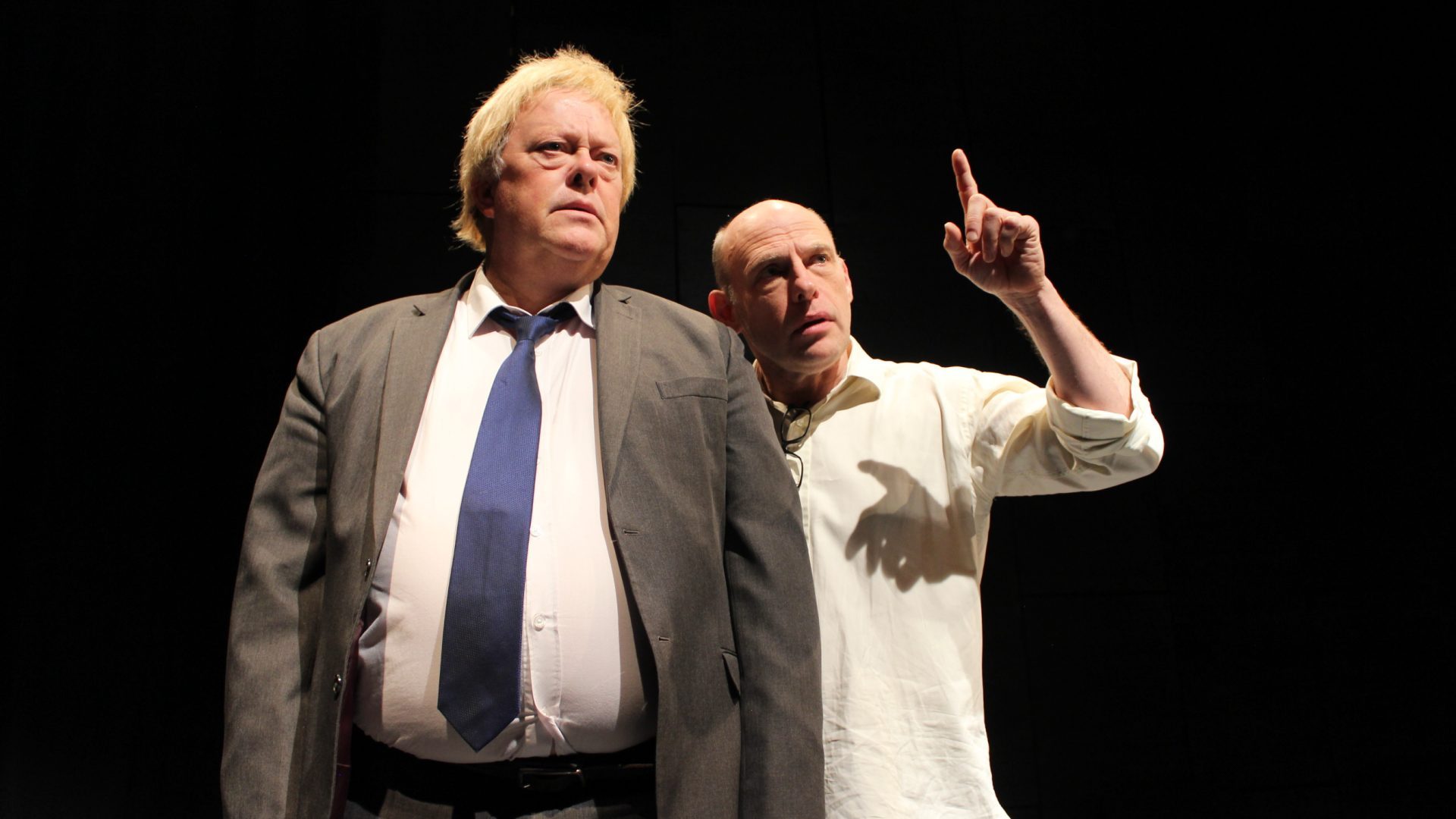Writing plays about living people can be a double-edged sword. In marketing terms, it’s a dream. Audiences like to see familiar events and personalities represented on stage so a high level of interest is guaranteed. But the figures who command the most attention are often morally questionable or downright loathsome.
So a successful play about current affairs is bound to be populated by cheats, rotters, liars and scoundrels. That doesn’t bother me. I began to write Dom – the Play after chatting to Michael Kingsbury, the director, about the most divisive hate figures in British politics. One name kept cropping up, Dominic Cummings, who seemed an ideal subject for a satire. So I set to work.
The play opened at the White Bear Theatre in July 2022 and transferred to The Other Palace, in Westminster, last February. After a sell-out run, it moves to the Theatre Royal Windsor, where it is running until April 29.
Dom has been demonised for years as a dangerous anarchist, a cunning manipulator of polling statistics, and a successful campaigner who uses questionable methods to get the result he wants. I was keen to add some nuance and subtlety to this demonic caricature so I looked at aspects of his character that might attract admiration.
Cummings hated the sluggish and corrupt culture of Whitehall and he set out to overhaul the civil service from scratch. Few of us would oppose that ambition. He argued that all government policy should be based on data science (a fancy term for facts and evidence) rather than on the prejudices of ministers. Another laudable aim. And he wanted to create a UK Space Programme – first stop, the moon. On paper it looks crazy, but why shouldn’t Britain reach for the stars?
The play also tackles Dom’s more controversial moments – his trip to Barnard Castle and his infamous “£350m for the NHS” slogan on the Brexit bus. In the play, Cummings is portrayed as a defiantly arrogant figure who refuses to apologise for anything. He even rejects the “evil genius” label slapped on him by his enemies. “I’m not a genius,” he tells the audience. “Everyone else is thick. Let’s get it the right way around.”
Crucial to the Cummings story is his pact with Boris Johnson which ended in his dismissal from Downing Street in November 2020. But Johnson is a much harder figure to satirise than Cummings because his vices are so well-known.
For decades we’ve watched the antics of the bumbling clown, the greased piglet, the shameless adulterer, the absentee dad, the unscrupulous scrounger and the serial evader of truth and facts. To give these well-worn qualities a new direction I decided to dramatise the opening year of Johnson’s premiership when he was caught between two powerful but unaccountable activists.
On one side he had Cummings pushing for the reform of the government machine and at the same time, he was faced with Carrie Johnson’s pleas to embrace a more touchy-feely Green agenda. In the play we see Johnson torn between these irreconcilable opposites. And he responds, in character, by lying constantly, twisting the truth, and doing everything he can to preserve the only thing that matters to him: power. So although Johnson’s playbook is familiar, the narrative setting offers a fresh perspective on his moral failings.
Some politicians need no satirical rocket-boosters to make them appear ridiculous. Theresa May has a cameo part in which she re-enacts her Abba moment at the Tory conference in 2018. The music starts and she waltzes onto the stage, jigging and dancing like a disco diva. The crowd love it – even though it’s not an exaggeration. That’s simply what Mrs May did.
Likewise, our Tony Blair impersonator recites the lines delivered by Blair in 1998 as he announced the Good Friday Agreement: “This isn’t the day for soundbites – but I feel the hand of history on our shoulder.” His self-congratulatory speech always gets a big laugh.
Certain hate figures are so well known that the audience can get ahead of the script. I wrote a small part for Prince Andrew as a boo-hiss baddie who sympathises with Prince Harry’s predicament. “It’s no fun being the second son,” says Andrew. !No proper role in life…” To which a heckler added, “no sweat glands either.” And it won a round of applause. I offer my thanks to that anonymous contributor. A free line. And a free laugh every night.
Dom – the Play is at Theatre Royal Windsor, April 19-29. More details can be found here.









